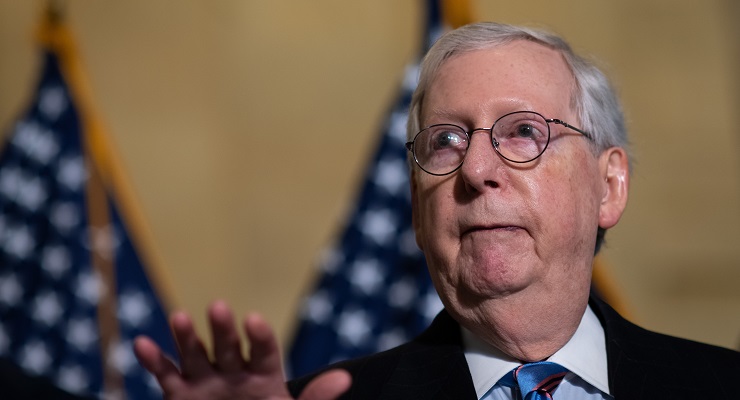
On January 8, 1835, President Andrew Jackson paid all outstanding US government debt. It was the first and only time that the federal government eliminated its debt obligations in full. And it triggered a major economic crisis — the Panic of 1837, which was the deepest depression in US history to that time.
As a young man, Jackson had nearly been ruined by speculative investments. His experience taught him to distrust debt, which he regarded as a moral failing. When he reached the Oval Office, he was determined to rid America of this curse. Unfortunately, his grasp of economics did not match his military prowess. He did not understand that government debt is unlike personal debt for multiple reasons. In this he was hardly unique.
Government debt fulfils many functions for a nation. It finances investment in infrastructure, education and healthcare to help economies grow faster than they otherwise might. It underwrites national security. It affords a safe harbour for individuals and corporations to store their wealth. It backstops a national banking system. When interest rates are at historic lows, as they are now, government debt put to productive ends can generate returns more than ample to cover the costs. Debt also allows governments to share the burden of long-term investments across generations, ensuring that everyone who benefits from such expenditures contributes to them.
A common refrain about governments is that they should be run like businesses; the belief is that private enterprise is more efficient, productive, and doesn’t waste money. Although these assumptions are open to question, two features never receive attention. Large firms invariably use debt as part of their capital structure, because it is more cost-effective than relying on shareholder equity alone.
Also, debt is just one component of a corporate balance sheet. Nobody would ever judge a company purely by its debts. That would be pointless. To understand a company’s financial health, one needs to look at its assets, as well as its profitability and cash flows.
This provides a comprehensive perspective as to whether a company’s debt level is prudent, sustainable and proportionate to its needs. Yet for some reason we don’t consider government finances in the same way. When was the last time you heard mention of US government assets?
Now Congress is locked in another political battle over government debt that could have enormous ramifications for both the US and global economies. The federal government spends more money each year than it receives in revenues, meaning that it runs a budget deficit. The government sells US Treasury bonds to investors to fund the shortfall. These bonds are backed by the full faith and credit of the US government, and are considered the safest investment in the world. They are the cornerstone of the global economy, and are critical for assessing the risk and return of all other financial instruments issued by governments, banks and corporations around the world.
The issuance of US Treasury debt is subject to an aggregate limit approved by Congress. Since this debt ceiling was introduced in 1917, Congress has increased the limit 98 times. This has usually been agreed on a bipartisan basis, since sensible politicians understand the financial catastrophe that would ensue if the US government were unable to pay its way.
However in recent years Republican legislators have repeatedly threatened to oppose raising the limit when a Democratic president has been in the White House. Instead they have weaponised the process, using it as a cudgel to lambast what they argue is excessive government spending. They did this under Bill Clinton and Barack Obama, and are at it again now Joe Biden is in charge. (They did not display similar concern when George W Bush and Donald Trump ran the show. Nor did they have any hesitation in hiking the national tab by $7 trillion for two failed wars.)
In 2011 and 2013, congressional Republicans precipitated showdowns by vowing not to raise the debt ceiling unless their political demands were met. Their hostage tactics were spurred on by newly elected “Tea Party” conservatives, who viewed compromise as weakness. Revealing the same economic ignorance as Andrew Jackson, they believed that capping US debt at a fixed amount and slashing government spending was good policy for economic growth.
In 2011, the crisis led Standard & Poor’s to downgrade the US federal government to below AAA rating for the first time ever. While this might seem inconsequential, it had two significant impacts. It increased the cost of borrowing for the US government, meaning it would have to pay billions of dollars extra in interest payments on future debt. It also established the precedent that the US government no longer ranked among the most secure borrowers, which meant that in future economic crunches market reactions might be more volatile and unpredictable.
As of September 30, 2021, the federal government will have reached its most recent authorised debt limit. Once again, Republicans are playing chicken with the global economy. Last week the House of Representatives approved an increase in the debt ceiling. Every Republican voted against the motion.
On Monday it was the Senate’s turn. Minority Leader Mitch McConnell and his fellow Senate Republicans also voted unanimously to block the bill. Cynically McConnell avows that the US government cannot be allowed to default on its obligations, even as he leads his colleagues to compel this outcome. He wants to force Democrats to vote for higher debt limits, so that the GOP can roll out their threadbare tax-and-spend tag come the midterm elections. He wilfully ignores that he and his colleagues, with Democratic support, repeatedly raised the debt ceiling during Trump’s tenure while adding $7.8 trillion to the national debt.
Republicans are able to get away with their tactics for two reasons. First, they understand that when it comes to politics, voters have the memory of a goldfish. What went before is usually forgotten. Instead, most people only pay attention to the headlines of the day. So there is rarely any political price to pay for lies and hypocrisy.
Second, voters have little understanding of economics and finance. When they think about government debt, they equate it with their mortgages and credit cards. Like Andrew Jackson, they see it as an albatross to be shed. From this perspective, federal debt makes a perfect political weapon for Republicans to brand Democrats as profligate and immoral.
The smarter heads among them know this is nonsense. The stupider ones actually believe it. Either way, it has proven an effective battering ram time and again.
Notwithstanding the agenda President Biden wishes to enact, the debt ceiling needs to be raised for spending commitments previously passed by Congress. Even if the Biden administration makes no additional investments — which they actually propose to pay for by rescinding tax cuts on corporations and the wealthy, rather than new debt — the US government must continue borrowing to function.
Last week Moody’s Analytics released an analysis of the financial calamity that default would unleash on the global economy. In America it would stifle the nascent recovery from the COVID-19 pandemic, plunging the country back into deep recession. Six million jobs would disappear, with $15 trillion in household wealth wiped out. Global stock markets would tumble and credit markets would freeze, sending shock waves around the world. No nation would escape the economic tsunami.
Yet even with the cliff edge fast approaching, markets remain sanguine. Investors assume that because default would be catastrophic it is unthinkable. They conclude that the latest political brinksmanship is nothing more than another round of partisan point-scoring. They have seen this movie before, and they trust that wiser heads will prevail.
To now, this view has always held. Heaven help us if the day comes when the hostage takers refuse to blink.








So the Republicans might consider a big corporation too big to fail, but apparently the US economy – many orders of magnitude bigger than the largest corporation – is a plaything to get their own way. Ain’t hypocrisy grand?
“Notwithstanding the agenda President Biden wishes to enact, the debt ceiling needs to be raised for spending commitments previously passed by Congress.”
This goes to the heart of the insanity of the wholly artificial recurring debt ceiling crisis. Biden – or any other president – is not seeking to increase government spending. That decision has already been taken by Congress. Congress is actually objecting to paying the bills when they come in for the spending that Congress previously authorised.
There should never be any debt ceiling debate or vote, the US government should just get on with paying its bills. The way to rein in spending, if that’s what they want, is to stop spending in the first place. The hypocrisy, stupidity and dishonesty is staggering.
“the belief is that private enterprise is more efficient, productive, and doesn’t waste money.”
More like a trope, or a meme, than a belief. It may be true for small business, but small business is also littered with really poor business people, so only sometimes. Medium business are sometimes more efficient, productive, and don’t waste money, but in comparison to what? Big business is easily as wasteful as big and small government.
But nothing is as wasteful as a ScoMo government.
Most structures, natural or artificial, once beyond optimum size, have to devote more resources to sustaining the structure than fulfilling the purpose.
Think Saturn V launchers – 90+% of the weight is engine & fuel.
Or any HR section.
“On Monday it was the Senate’s turn. Minority Leader Mitch McConnell and his fellow Senate Republicans also voted unanimously to block the bill.”
They can only do this because f the filibuster. A mechanism where the minority (minimum 40%) can reject legislation supported by the majority
The US Senate is an unrepresentative atrocity anyway, and was quite bad enough even before the insane filibuster convention greatly increased its malign blocking power. The Senate was designed to ensure slave-holding states could not be outvoted and today that malapportionment, which has become worse over time, gives states with a combined population that is a small fraction of the total US population the same representation as all the rest combined. This currently gives the Republicans a huge advantage totally out of proportion with their electoral support. Now the disadvantage of the larger states in the Senate is made much worse by the requirement to achieve at least 60% of the votes there to pass anything once the filibuster is invoked by any senator, even though there is no constitutional reason for this. It’s just a convention that evolved in recent decades. It’s not even an actual filibuster any more. Nobody is required to get up and continue speaking for however long it takes for time to run out for calling a vote on a bill. All that is needed is to declare the intention.
It’s not so easy to explain why the Democrats still refuse to act against the filibuster, but even if they did there still seems no prospect of reforming the Senate into something more representative.
It is the same here, with Tasmania getting the same senate representation as all the other states, despite being smaller.
But that goes with the idea that the Senate is for state representation.
And the ACT and NT being severely under-represented with only two senators each and both having to stand for re-election every three years.
Anyone else noticed the resemblance between Mitch McConnell and Randy the purple puppet?